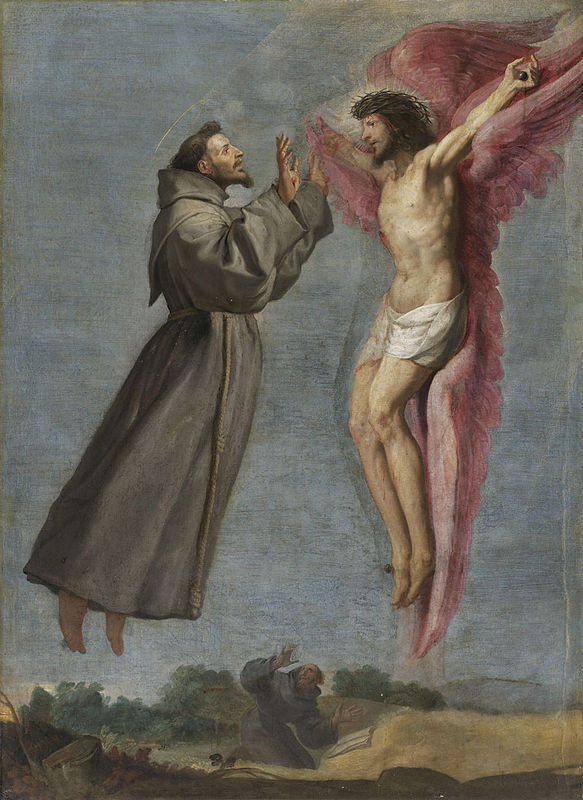Secularists are absolutely right to insist that priestly celibacy is wrong—based upon their own wrong premises. It has no place in a world that is dry of the divine. No other sexually reproducing organism deliberately abstains from sexual reproduction, any more than orangutans eat only fish on Friday. In a heavenless cosmos, there can be no saints; and the priestly calling is to spearhead the charge toward sanctity. Like the U.S. Army Rangers, whose motto is "Follow me," the priest, the alter Christus, must call "Come, follow me!" (Matthew 4:19). Only in that context can the strange sacrifice of the presbyterium be understood. But without it, even secular society cannot reproduce.
In his Notes towards the Definition of Culture, T. S. Eliot argues that a culture is "the incarnation (so to speak) of the religion of a people." Now, we can dispute the ethics of Christendom. The average person believes that the Spanish Inquisition, for instance, was responsible for the deaths of more people than were alive in Europe. The average person decries the Crusades, never having heard of the Muslim invasions and the greatest cavalry charge in human history. But for our current purpose, we needn't compare ethics with Eliot's contemporary counter-examples, but only the aesthetic achievements of our respective cultures. Even if the Church had slaughtered as many innocents as the Union or the Reich, or a tenth of a percent as many, she still offers Handel's Messiah to set against Wessel's Nazi anthem. She still brings Michelangelo's Pieta to set against Lenin's tomb. She still holds out the Irish monks who bore the knowledge of the West through the Dark Age, to set against the bonfires of Berlin. Only clerical ignorance, it seems, allows the wisdom of one generation to pass on to the next. This seems particularly relevant now that the plights of Europe and Japan have forced us to invent the term "population implosion." The same secularists who denounce the celibacy of priests have cursed themselves to bear no fruit. Plain worldliness defeats itself.
The teachings of Christ, conversely, have a tendency to conceal enormous practicality beneath their otherworldliness. When He counsels us to take the lowest seat at the banquet, it is of course meant to encourage us in humility and self-sacrifice—but it also gives our host the occasion to say, "Friend, go up higher." In the same way, a priest's vow of celibacy carries the great practical benefit of freeing him from the obligations of a natural family, so that he can look upon his whole congregation as a flock of sacred children. But ultimately, that is only a side effect. After all, priests who have been ordained and married in Protestant ministries can receive a dispensation if they convert. The true purpose and significance of the vow lies elsewhere.
There is no remittance of sin without the shedding of blood (Hebrews 9:22, also cf. Leviticus 17:11). St. Francis sought martyrdom among the Muslims to no avail, but became the first recipient of the Stigmata. And those same supernatural wounds afflict every priest who stands on the altar of God, sharing in the single sacrifice of Calvary, upon which they lay their earthly nature as a holocaust. The highest natural vocation for a man is marriage and fatherhood. That is why the priest, who cannot always find the martyrdom of blood, instead offers up his flesh in a harder way, a way that crucifies his merely mortal destiny each day, throughout his life. By his blood, and not otherwise, we partake in the blood that remits our sins forever.
And what recompense does the priest receive? There's another story: one night, the people of Assisi saw the church of the Portiuncula ablaze. They came running up the hill with buckets of water to douse the fire. But inside, they found only St. Francis and St. Clare, sitting calmly, speaking of the love of God. And from their faces came such a radiance that the whole church glowed as if with holy flame.
Also, this. And this.

No comments:
Post a Comment